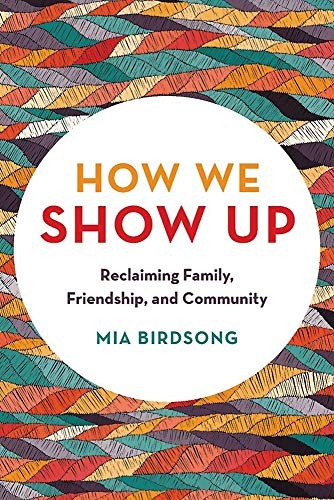paperback, 272 pages
Published June 2, 2020 by Hachette Go.

paperback, 272 pages
Published June 2, 2020 by Hachette Go.
An Invitation to Community and Models for Connection
After almost every presentation activist and writer Mia Birdsong gives to executives, think tanks, and policy makers, one of those leaders quietly confesses how much they long for the profound community she describes. They have family, friends, and colleagues, yet they still feel like they're standing alone. They're "winning" at the American Dream, but they're lonely, disconnected, and unsatisfied.
It seems counterintuitive that living the "good life"--the well-paying job, the nuclear family, the upward mobility--can make us feel isolated and unhappy. But in a divided America, where only a quarter of us know our neighbors and everyone is either a winner or a loser, we've forgotten the key element that helped us make progress in the first community. In this provocative, groundbreaking work, Mia Birdsong shows that what separates us isn't only the ever-present injustices built around race, class, gender, values, and …
An Invitation to Community and Models for Connection
After almost every presentation activist and writer Mia Birdsong gives to executives, think tanks, and policy makers, one of those leaders quietly confesses how much they long for the profound community she describes. They have family, friends, and colleagues, yet they still feel like they're standing alone. They're "winning" at the American Dream, but they're lonely, disconnected, and unsatisfied.
It seems counterintuitive that living the "good life"--the well-paying job, the nuclear family, the upward mobility--can make us feel isolated and unhappy. But in a divided America, where only a quarter of us know our neighbors and everyone is either a winner or a loser, we've forgotten the key element that helped us make progress in the first community. In this provocative, groundbreaking work, Mia Birdsong shows that what separates us isn't only the ever-present injustices built around race, class, gender, values, and beliefs, but also our denial of our interdependence and need for belonging. In response to the fear and discomfort we feel, we've built walls, and instead of leaning on each other, we find ourselves leaning on concrete.
Through research, interviews, and stories of lived experience, How We Show Up returns us to our inherent connectedness where we find strength, safety, and support in vulnerability and generosity, in asking for help, and in being accountable. Showing up--literally and figuratively--points us toward the promise of our collective vitality and leads us to the liberated well-being we all want.